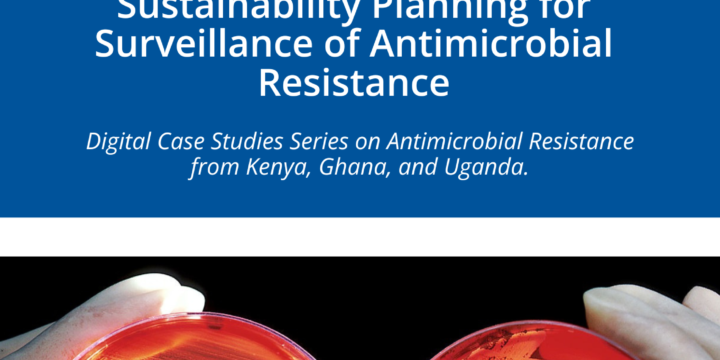
Implementing AMR Surveillance Sustainably in Africa: Insights and Lessons from Ghana, Kenya, and Uganda
Antimicrobial resistance (AMR) is a significant global public health menace. When antimicrobials are ineffective against previously treatable infections, it undermines the ability of health systems around the world to treat even minor infections, resulting in more expensive treatments, and excess mortality and morbidity when infections become untreatable. A recent study on the burden of AMR estimates nearly 5 million deaths associated with bacterial AMR in 2019, with 1.3 million deaths attributable to bacterial AMR 1, suggesting that AMR is at least as large as HIV and malaria. Of all the regions, Sub-Saharan Africa has the highest mortality rate from bacterial AMR at 27.3 deaths per 100,000.1 This high burden is exacerbated by a shortage of trained professionals and limited microbiology laboratory capabilities. In fact, only 1.3% of the 50,000 medical laboratories in…

